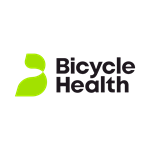While poppy seeds are a legal substance, misuse of poppy seed tea can lead to opioid misuse, contribute to overdose and death
Published in the Journal of Addictive Diseases, this first-of-its-kind study examined the effectiveness of using medication for opioid use disorder and telehealth treatment options for poppy seed tea use disorder
BOSTON, Jan. 09, 2024 (GLOBE NEWSWIRE) -- Bicycle Health, the nation’s largest virtual provider of integrated medical and behavioral healthcare for opioid use disorder (OUD), published first-of-its-kind research in the Journal of Addictive Diseases detailing the effectiveness of telehealth treatment options for patients struggling with poppy seed tea (PST) use disorder.
PST is a legally obtainable source of opiates made from the seeds of the opium poppy. Some people prepare the tea specifically to elevate the opiate burden so that the consumable tea can be used recreationally. PST has also emerged as a substitution for medication for opioid use disorder (MOUD) treatment when people cannot access prescription medications like buprenorphine.
In large quantities, PST doses can be high enough to contribute to overdose. Reports to poison control centers and the U.S. Food and Drug Administration indicated at least 591 exposures and 19 U.S. deaths associated with poppy consumption between 2000 and 2018.
The Bicycle Health study analyzed 18 patients treated for primary PST use disorder via Bicycle Health’s telehealth-based treatment model. These patients were treated with buprenorphine to prevent withdrawal symptoms and opioid cravings. This represents the largest case series of patients in the US with PST use disorder and the first to describe its treatment in the telehealth environment.
Key findings from the study include:
- 83% of PST patients were male, compared to 60% who are male in Bicycle Health’s general patient population;
- The median starting buprenorphine dose was 2mg, which is much lower than doses providers typically use to treat OUD;
- However, the median stabilizing dose of buprenorphine was 16mg daily, which is similar to the dose used to treat other patients with OUD;
- The 180-day retention rate for the PST use disorder patients in this case series was 66.7%, compared to Bicycle Health’s overall 180-day retention rate of 55.6%.
“While understudied in the US, poppy seed tea misuse should not be taken lightly,” said Dr. Scott Weiner, Director of Research at Bicycle Health. “Our recent study shows how MOUDs like buprenorphine can be leveraged to treat less common OUDs. As we look to tackle the opioid epidemic, Bicycle Health is building out its experience to treat all forms of OUD and opioid dependence – whether it be caused by prescription or illegal opioids or lesser-known addictive substances like PST, kratom, tianeptine, and more.”
About Bicycle Health
Bicycle Health is America’s #1 telehealth provider of medications for opioid use disorder (MOUD), offering an evidence-based clinical care model that includes FDA-approved Medications for Addiction Treatment (MAT), access to a highly-trained team of medical experts, therapy, a customized treatment plan, and peer support groups. Bicycle Health’s mission is to address the country’s most severe public health crisis by providing access to affordable, convenient, and confidential tele-MOUD treatment for individuals in need and helping to reduce stigmas associated with opioid addiction. For more information, visit www.bicyclehealth.com.
Contact
LaunchSquad for Bicycle Health






